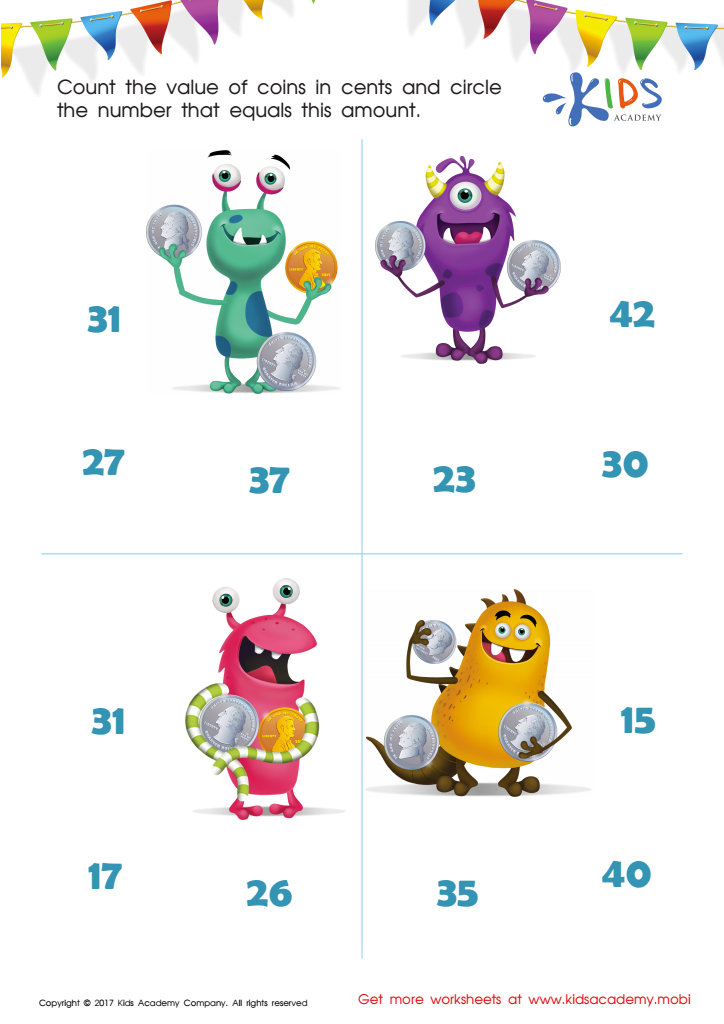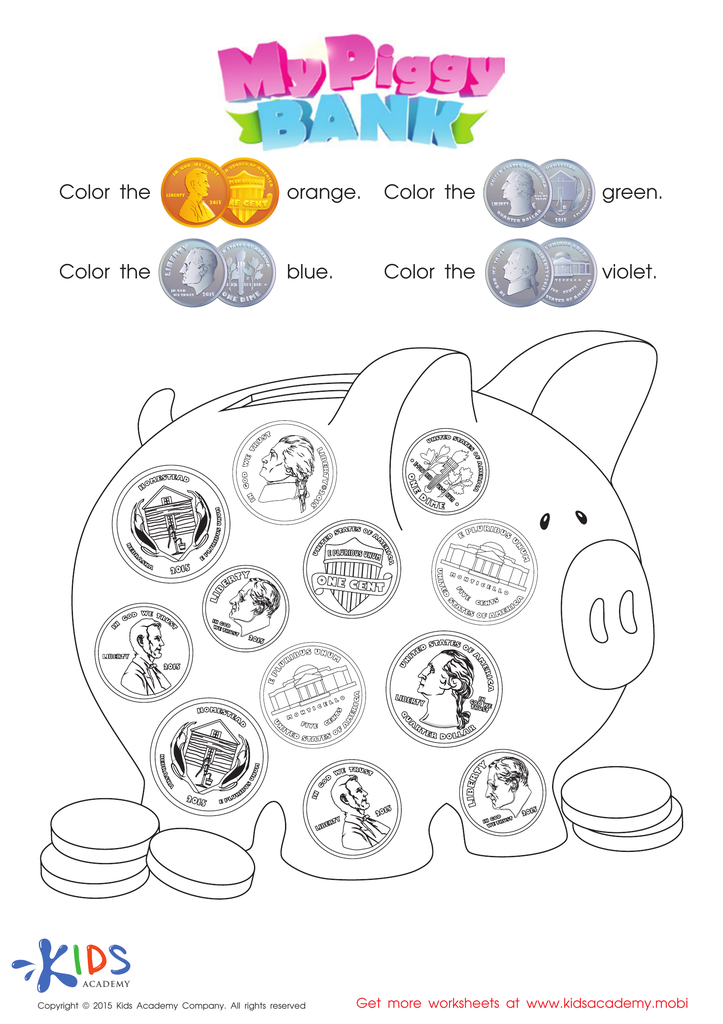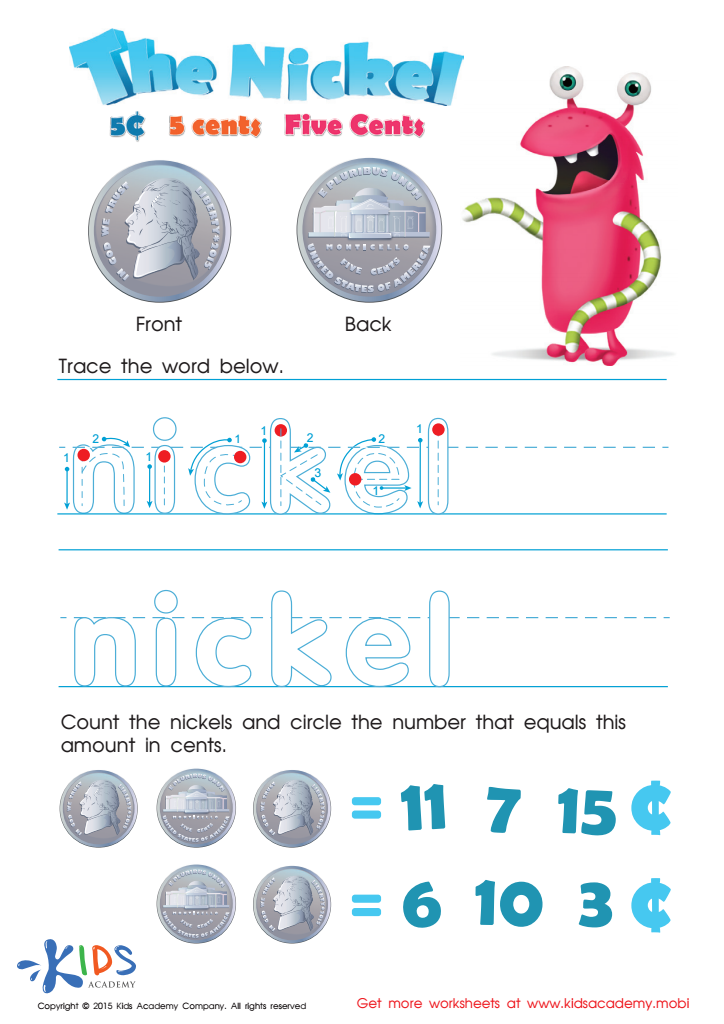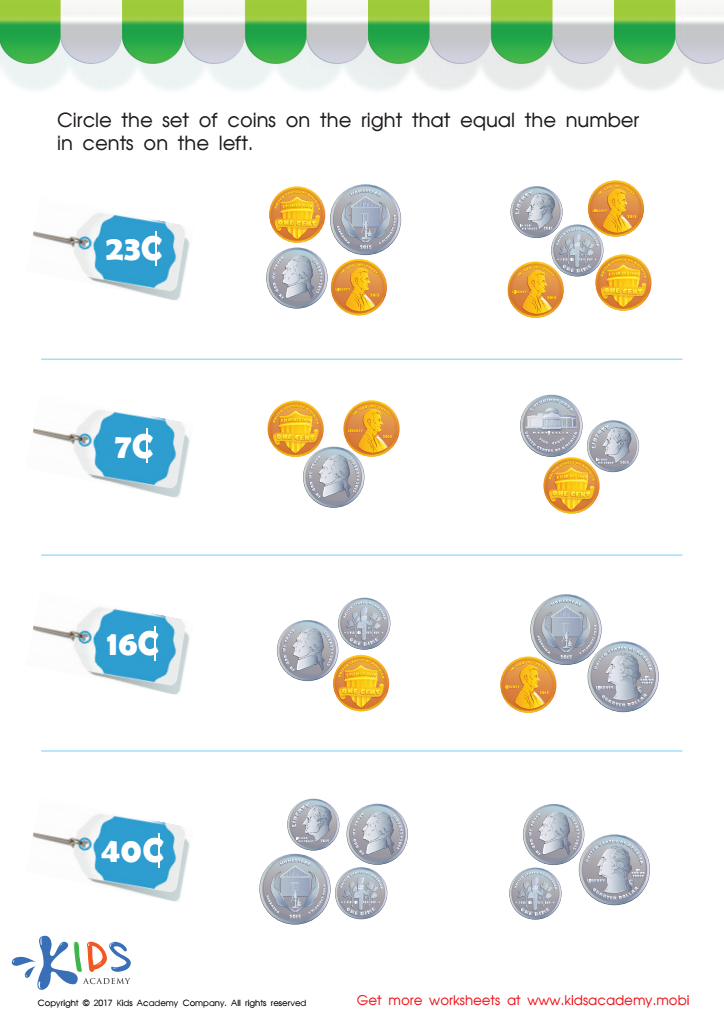Financial literacy Math Worksheets for Ages 6-7
4 filtered results
-
From - To
Introducing our engaging Financial Literacy Math Worksheets for Ages 6-7! Designed to build essential money management skills, these worksheets help young learners understand basic finance concepts. Children will love exploring practical scenarios like counting coins, making simple budgets, and solving word problems related to everyday spending. By incorporating fun, age-appropriate visuals and hands-on activities, these worksheets foster curiosity and confidence while enhancing math proficiency. Perfect for homeschooling, supplementary learning, or classroom use, our financial literacy resources empower kids to navigate the world of money, setting a strong foundation for their future. Start your child's journey to financial savvy today!


How Many Coins Money Worksheet


Recognizing Money Money Worksheet


Five Cents or the Nickel Money Worksheet


Picking the Coins You Need Money Worksheet
Financial literacy math is crucial for children aged 6-7, as it lays a foundational understanding of money management that can influence their attitudes toward finances for a lifetime. At this age, children are naturally curious and engage actively in learning, making it an ideal time to introduce concepts like saving, spending, and budgeting. Teaching financial literacy through math not only enhances their arithmetic skills but also integrates real-world applications, making math more relatable and interesting.
Understanding basic financial concepts encourages children to make informed choices early on. For instance, when they learn to differentiate between wants and needs, they develop critical thinking skills necessary for lifelong budgeting. Engaging in simple activities like counting change or planning a small purchase promotes responsibility and decision-making.
Furthermore, introducing financial literacy math supports parents and teachers in fostering a sense of independence among young learners. As they grasp these concepts, children feel empowered to manage small amounts of money, developing confidence in their abilities. Overall, prioritizing financial literacy math in the curriculum ensures children are prepared for a future where financial competencies are increasingly vital for personal and communal well-being. This early investment in their financial education can lead to more responsible and confident adults.

 Assign to My Students
Assign to My Students





















